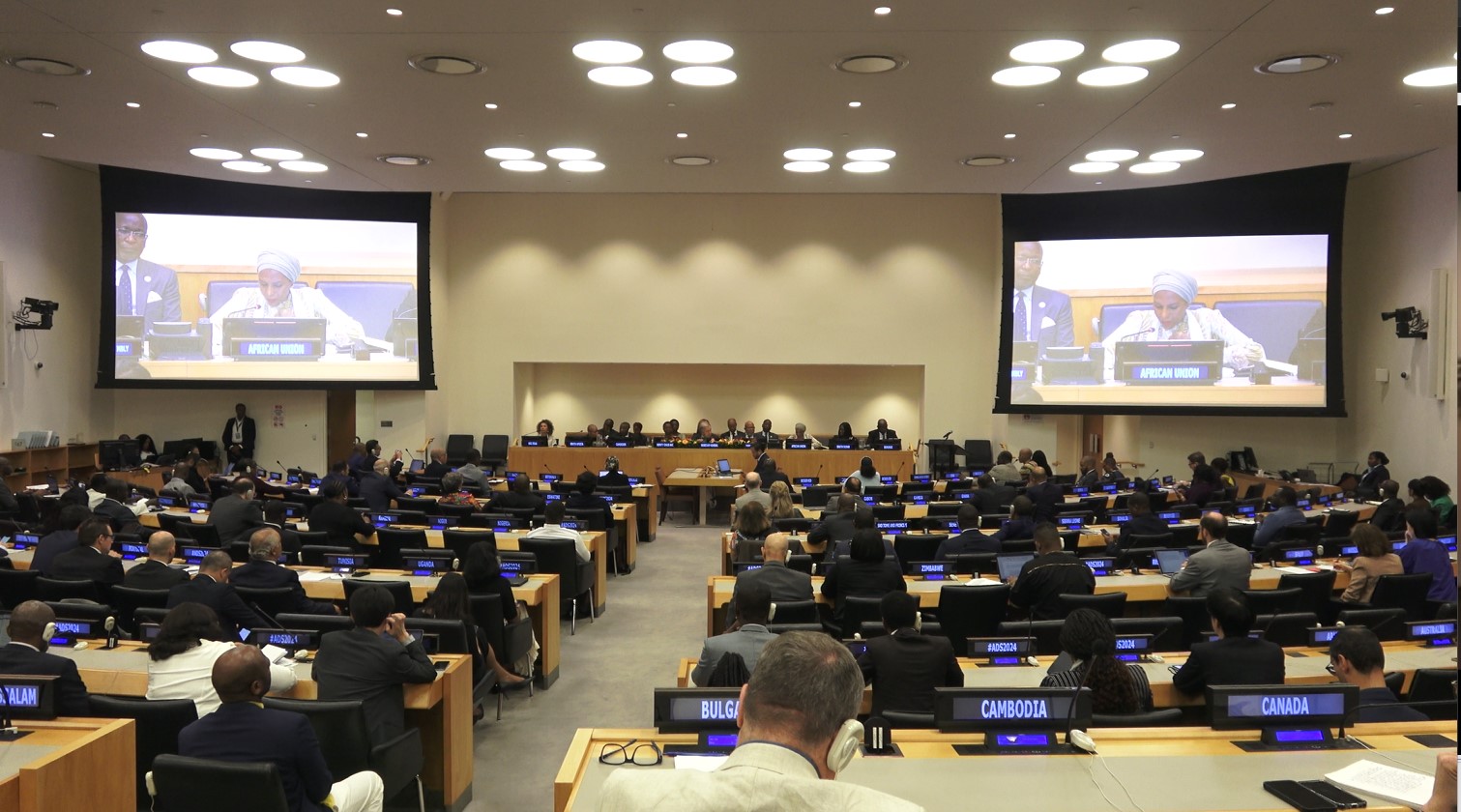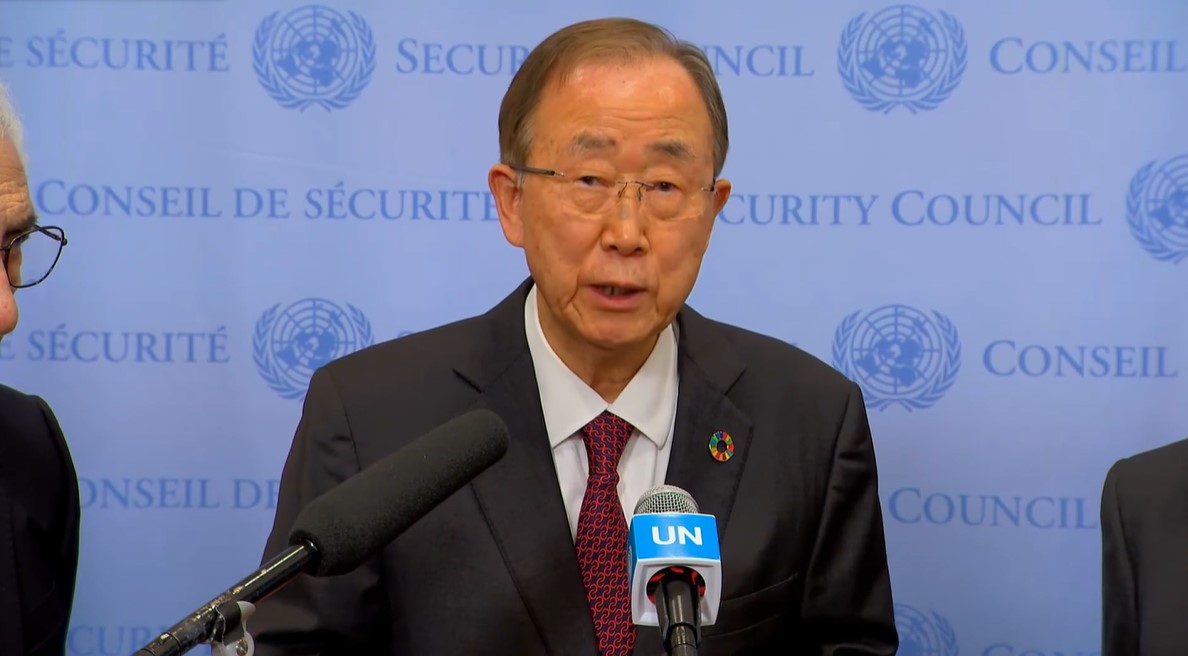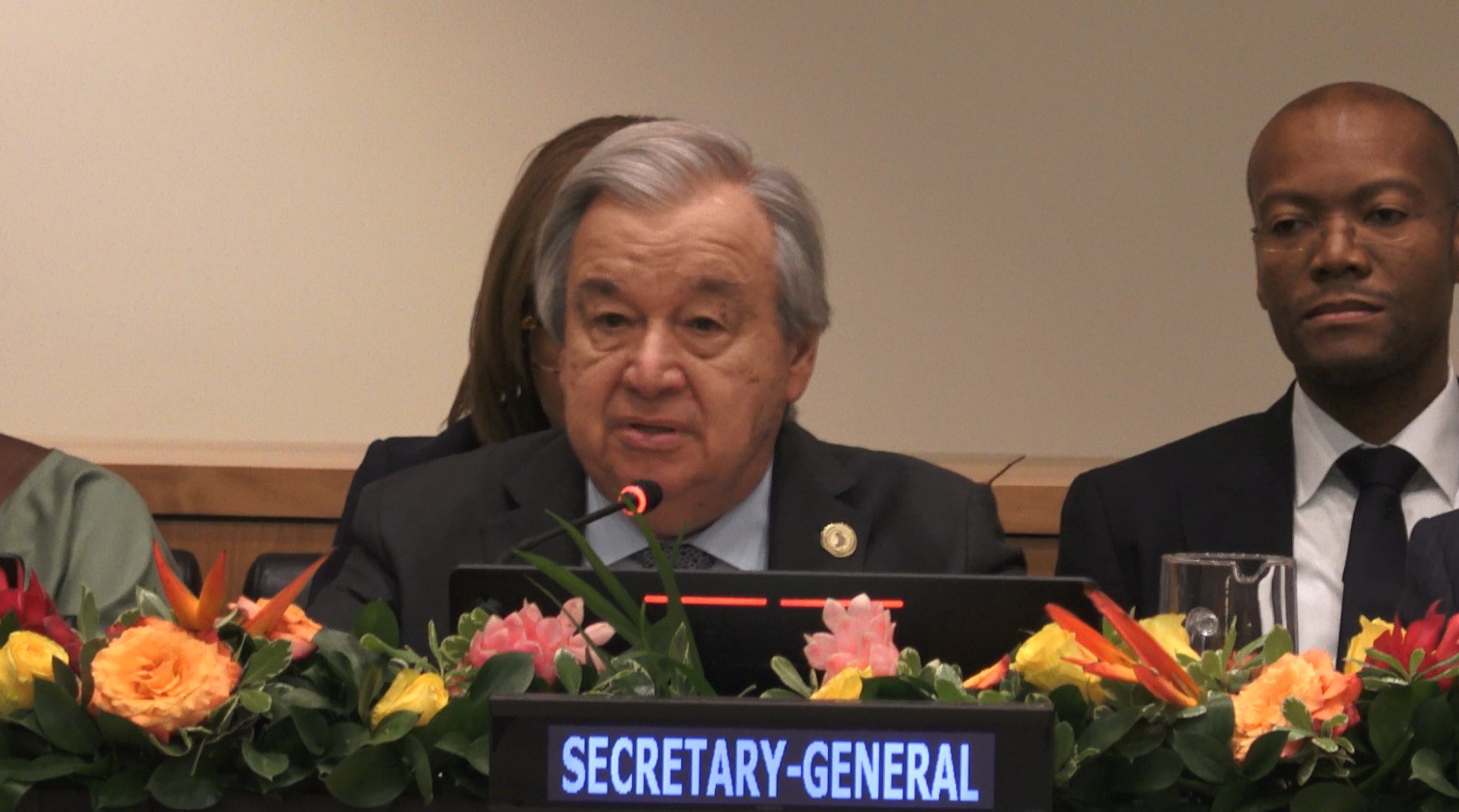
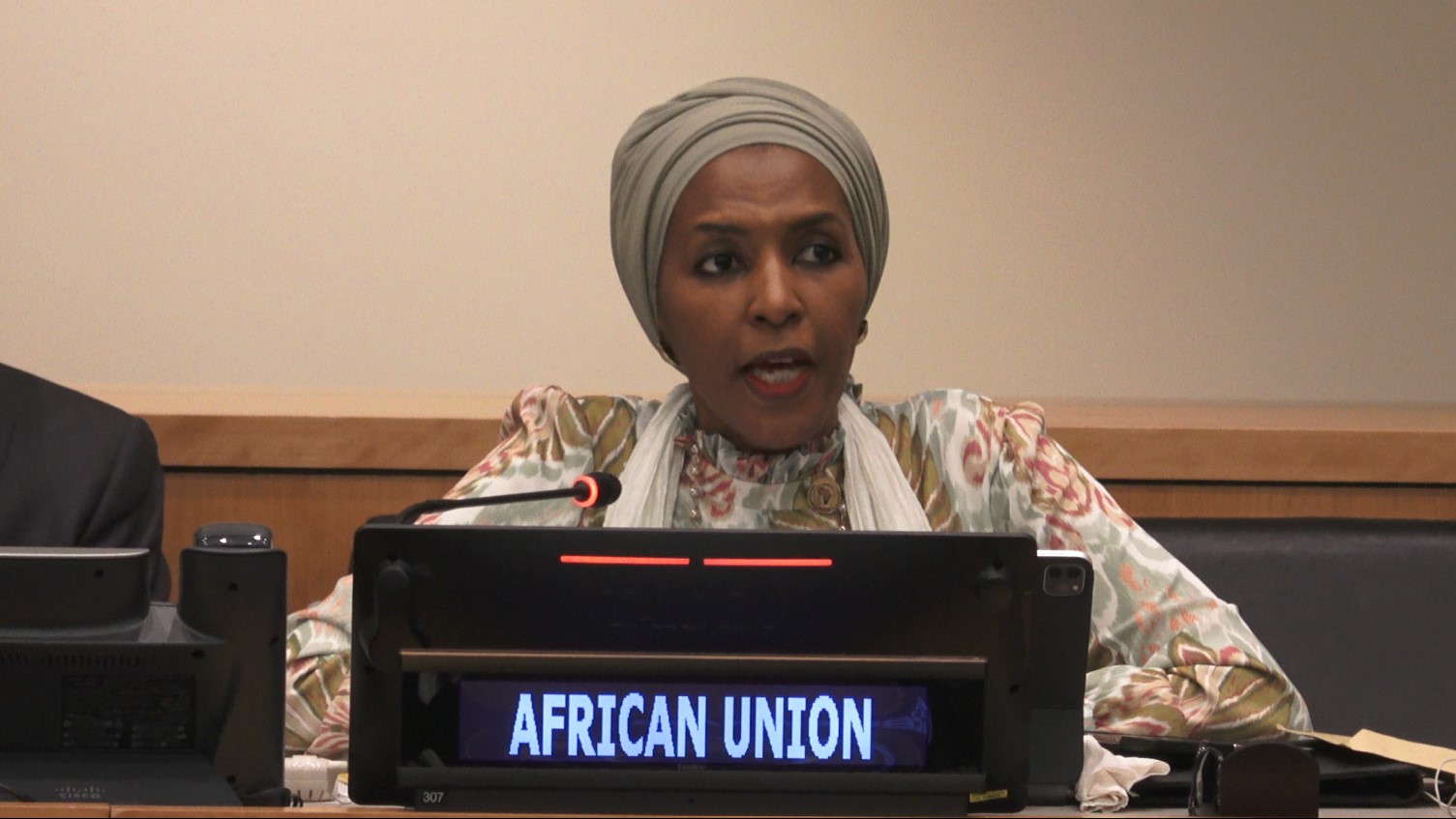
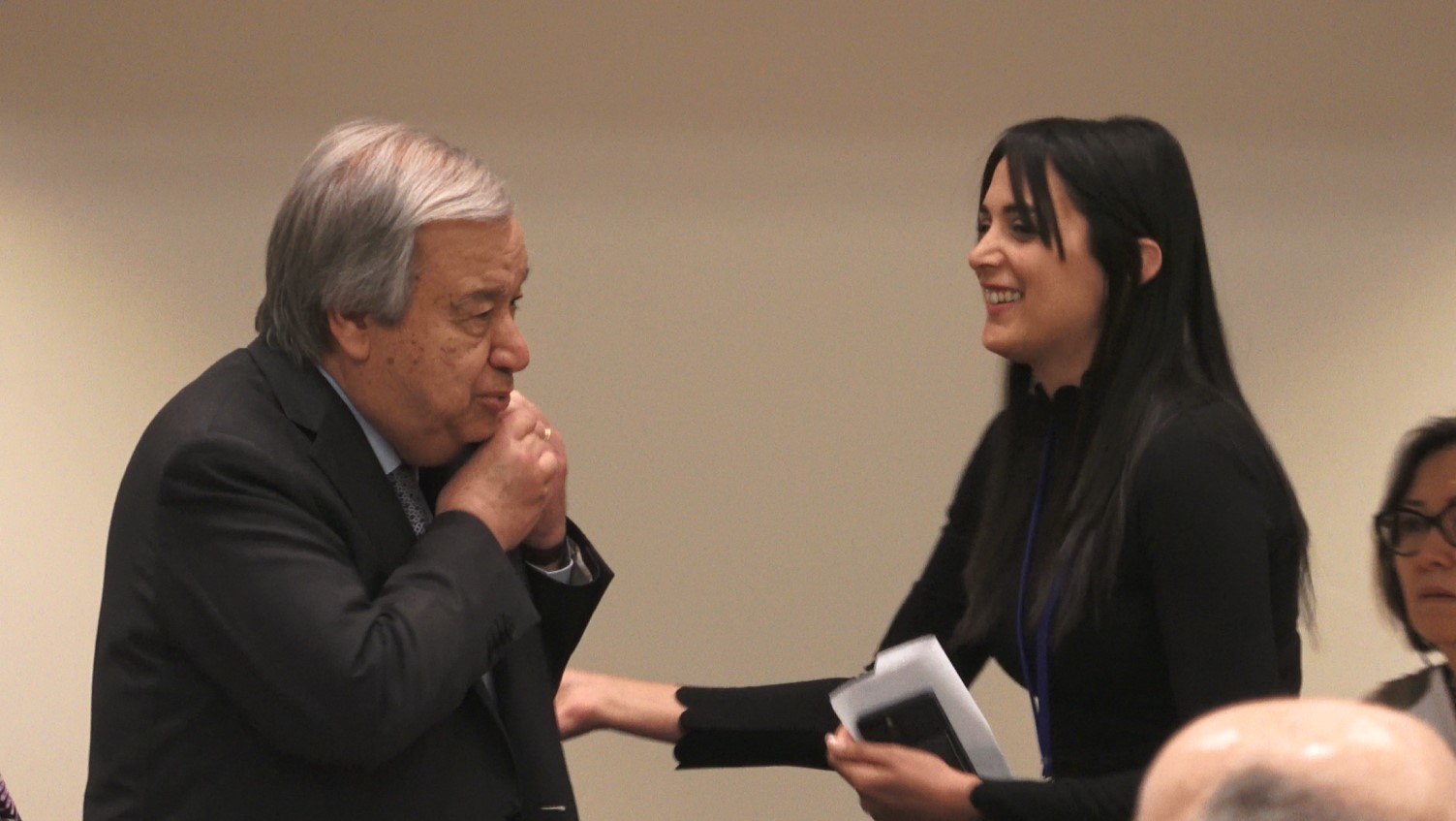
Estimados invitados, todos los protocolos observados. Hace cinco días, el mundo celebró el Día de África, una celebración de la esperanza y el potencial del pueblo africano. La serie de diálogos de este mes nos recuerda que desbloquear este potencial completo depende de un factor clave: la educación. La educación es la fuerza impulsora detrás de la prosperidad y el desarrollo de África. Proporciona oportunidades para los jóvenes africanos, conectándolos con su patrimonio cultural y pasado mientras los prepara para el futuro. La educación es la piedra angular de la economía basada en ciencia, tecnología e innovación que África necesita en las próximas décadas.
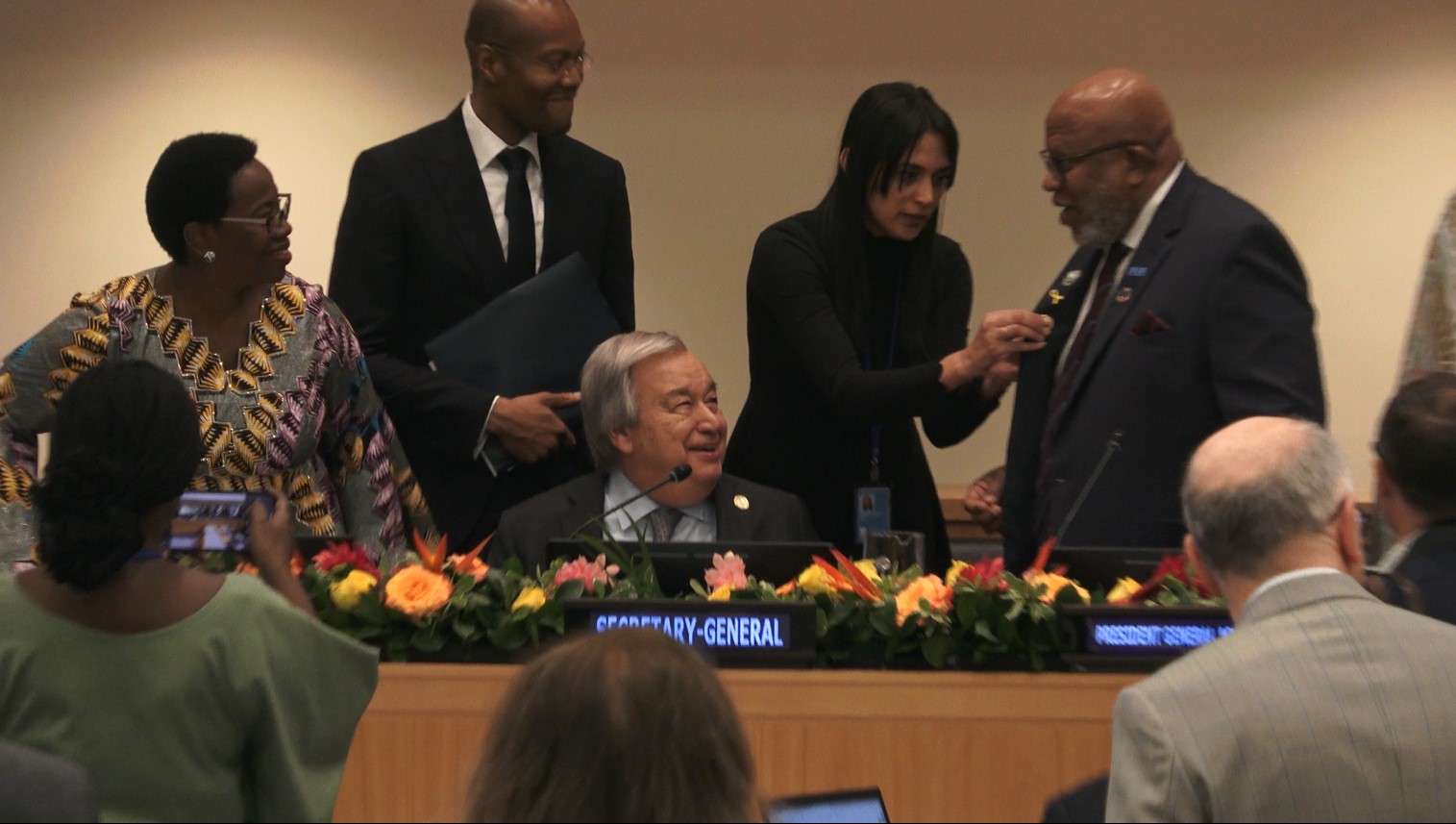
Elogio a la Unión Africana por hacer de la educación su tema para 2024 y enfatizo la importancia de superar los desafíos que enfrentan los sistemas educativos en todo el continente. La falta de inversión e infraestructura, el acceso desigual a la educación para las niñas, los conflictos y los desastres relacionados con el clima impiden que decenas de millones de niños y jóvenes africanos reciban educación. La escasez de profesores calificados agrava una crisis en los planes de estudio fundamentales y métodos de enseñanza que no logran preparar a los estudiantes para la fuerza laboral de hoy, especialmente en los campos STEM (Ciencia, Tecnología, Ingeniería y Matemáticas).
En la Cumbre de Transformación Educativa de 2022, las naciones se comprometieron a avanzar en la visión de crear verdaderas sociedades de aprendizaje arraigadas en una educación de calidad y el Objetivo de Desarrollo Sostenible 4. Esto incluye el aprendizaje permanente, la eliminación de las brechas digitales y de género, y el apoyo a los profesores en cada paso. Las recomendaciones políticas específicas surgidas de este diálogo representan una oportunidad para asegurar el progreso en el contexto africano.
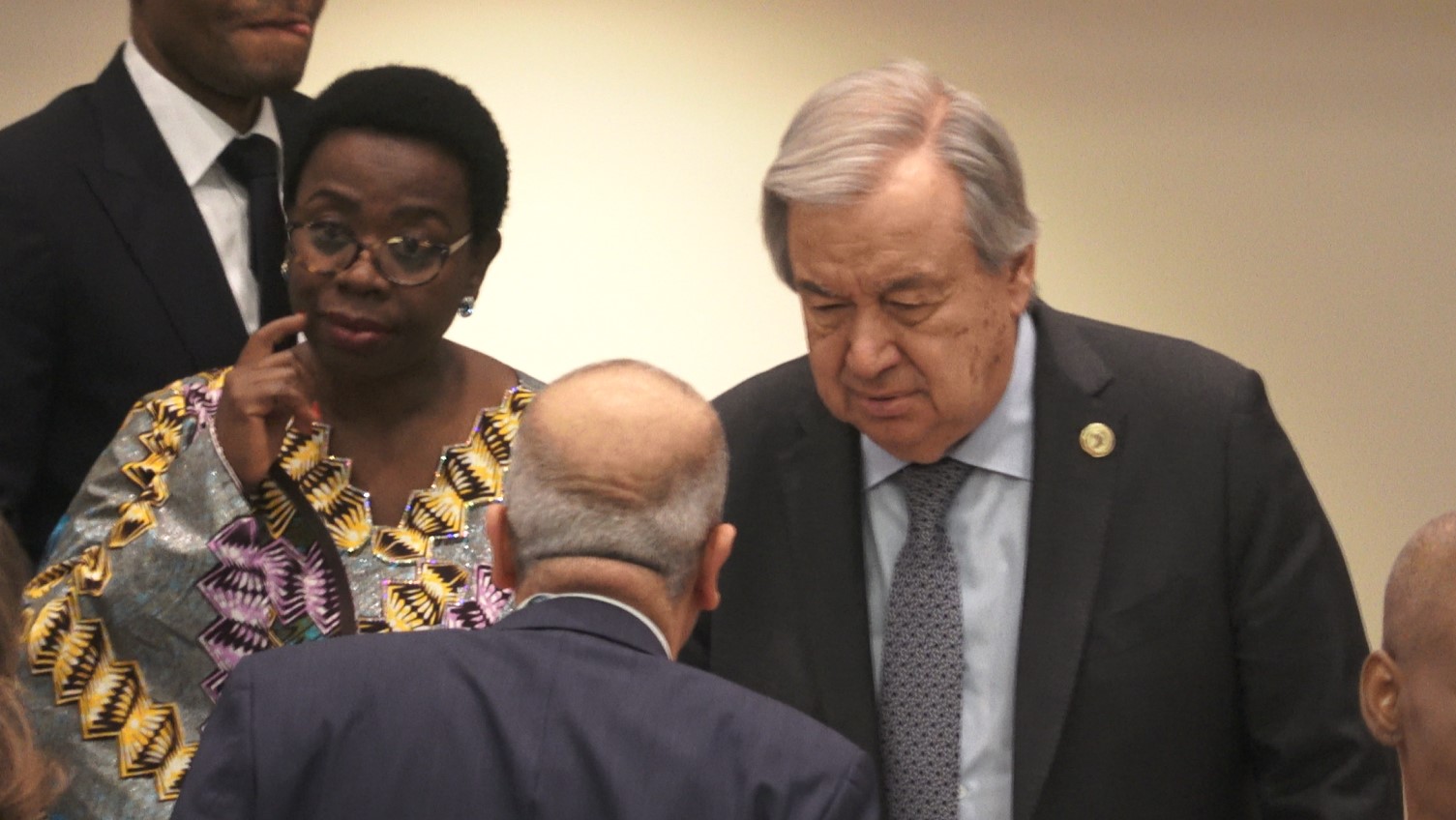
Quisiera destacar dos áreas en particular: En primer lugar, sin un aumento significativo en la financiación y la inversión en los sistemas educativos, el progreso es inalcanzable. Los países africanos han logrado avances sustanciales; casi un tercio ha alcanzado el umbral mínimo del 15% del gasto público o el 4% del PIB destinado a la educación. Sin embargo, las inversiones se ven obstaculizadas por desafíos económicos, incluidos los efectos a largo plazo de la pandemia de COVID-19, el aumento de los costos de vida y una crisis de deuda descontrolada. Muchos países africanos gastan más en el servicio de la deuda que en salud, infraestructura y educación combinados.
Mientras tanto, el endeudamiento se ve obstaculizado por un sistema financiero internacional anticuado, disfuncional y desleal, mientras que un sistema fiscal global desequilibrado e ineficiente priva a los países africanos de mayores ingresos domésticos. El año pasado, los líderes mundiales en la Cumbre de los ODS apoyaron un estímulo anual mínimo de los ODS de 500 mil millones de dólares. El estímulo también incluye una línea de vida de deuda para proporcionar a los países en desarrollo un respiro, en lugar de calendarios de pagos punitivos, y para expandir la financiación de emergencia para países afectados por crisis, incluyendo la reasignación de derechos especiales de giro. También necesitamos que los bancos de desarrollo multilaterales ajusten sus modelos de negocio para aprovechar mejor las finanzas privadas a un costo razonable para los países en desarrollo.
Este año, en la Cumbre del Futuro, espero ver compromisos concretos de los líderes mundiales para reparar fundamentalmente el sistema financiero global. Esto debe incluir garantizar una mayor representación africana en todos los sistemas e instituciones, incluido el sistema financiero global, junto con sistemas robustos de movilización de recursos domésticos. Estas son oportunidades para que los países africanos aumenten drásticamente la inversión en educación en los próximos años. También insto a los países donantes y a los bancos de desarrollo multilaterales a apoyar la Facilidad Financiera Internacional para la Educación lanzada en la Cumbre de Transformación Educativa. Es hora de realizar el potencial de esta instalación y movilizar 10 mil millones de dólares para ayudar a 700 millones de niños en países de ingresos bajos y medios a acceder a una educación de calidad.
En segundo lugar, los sistemas educativos africanos deben estar basados en ciencia, tecnología, ingeniería y matemáticas. No es suficiente con solo aumentar el número de niños en la escuela. Los estudiantes africanos, como los estudiantes de todo el mundo, necesitan habilidades y conocimientos para competir en la economía global moderna. Las materias STEM son críticas, desde la agricultura y la fabricación hasta la prestación de servicios en todos los aspectos del negocio, grande y pequeño, hasta la revolución de la energía verde renovable que está echando raíces en África. Las habilidades digitales son un buen ejemplo. La Corporación Financiera Internacional estima que para 2030, más de 230 millones de empleos en el África subsahariana requerirán habilidades digitales. A medida que transformamos lo que aprenden los estudiantes, también necesitamos transformar cómo aprenden.
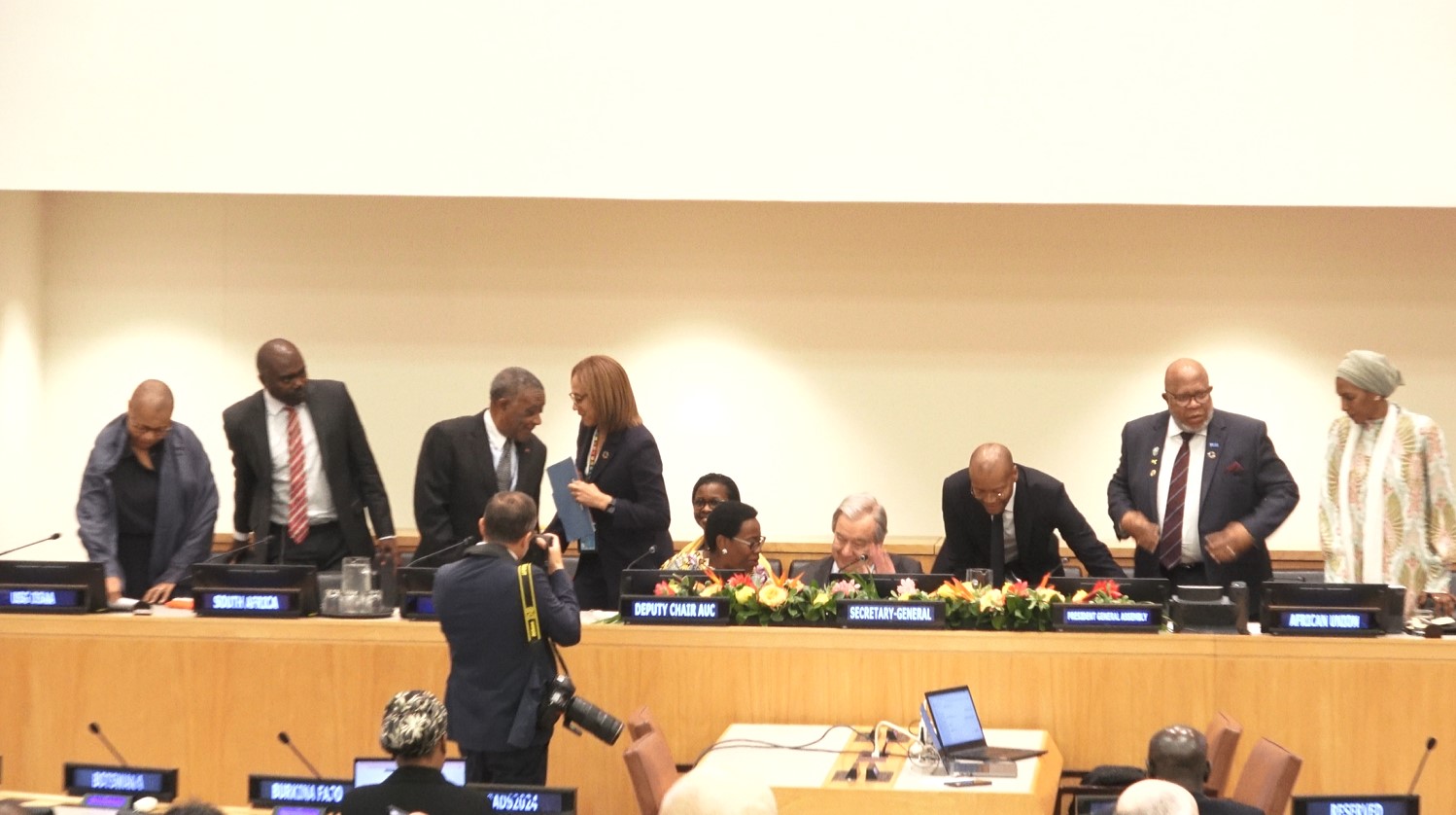
La tecnología digital ofrece una plataforma ilimitada para proporcionar educación a los estudiantes, sin importar dónde vivan. También es una oportunidad para ampliar la educación para decenas de millones de niños en edad escolar en África cuya educación se ve interrumpida por crisis como conflictos y desastres naturales. Superar esta gran barrera significa desbloquear estos beneficios—el hecho de que solo el 36% de los africanos tiene acceso a conectividad de banda ancha. Insto a los países a trabajar con compañías tecnológicas, proveedores de internet y la iniciativa GIGA de la ONU para proporcionar conectividad de alta velocidad universal y dispositivos para cada estudiante. Es hora de cerrar la brecha digital y movilizar los recursos financieros de la comunidad internacional para hacerlo posible.
Estimados invitados, estos temas y muchos más estarán en el primer plano de las reuniones clave de la ONU en París, Nueva York y Brasil este año, dirigidas a acelerar el progreso hacia el ODS4 para 2030. También serán centrales en la Cumbre del Futuro este septiembre. He invitado a todos los líderes mundiales a asistir, y es especialmente crucial que los líderes africanos aporten sus ideas y soluciones, incluyendo sobre educación. La África que queremos debe ser apoyada por los sistemas educativos que África necesita, y continuaré apoyando a África en este trabajo esencial.
Gracias a todos.
